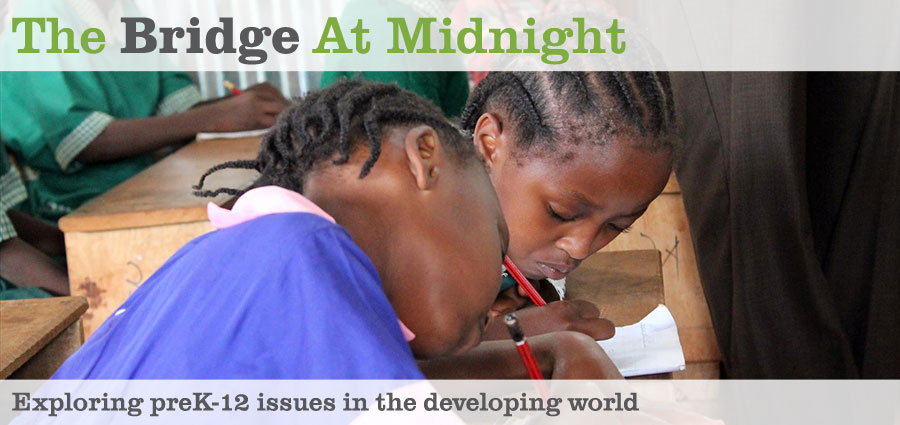Bridge on NPR
Posted: November 14th, 2013 | Author: Michael Goldstein | | No Comments »
From National Public Radio, a story about Bridge:
Primary school in Kenya starts at age 6 and runs for eight years. It’s officially free for all children, but parents regularly complain that government schools are overcrowded, understaffed and ineffective. Teachers often don’t show up, and parents are often expected to pay bribes to keep their kids in the “free” schools.
“What we (at Bridge) are trying to do is provide parents a real option,” Kimmelman says.
A critic says about Bridge:
“If somebody suggested that kind of an educational model, in this country they would be laughed out of the educational community,” says Ed Gragert, the U.S. director of the Global Campaign for Education, which advocates for increased access to education in the developing world.
“That’s not how kids learn best,” he says. “Kids learn by interacting with each other. It seems like we are going back for the sake of somebody making a profit to where a robot could teach that class.”
He says, however, he does admire the rigor of the Bridge model. School is in session from 7:30 a.m. until 5 p.m., five days a week. On Saturday, classes run from 9 until 4.
Reporters, by necessity, shorten long conversations to a single sentence or two. So I’m not sure what the critic meant in the totality of his remarks.
I would say:
1. The typical school in Kenya, whether gov’t run or private, is pretty rote.
If his concern is interactivity of pupils, I would agree that Bridge needs more, and we’re moving in that direction. But I’d also point out that we’re more interactive right now than the typical Kenyan school.
That is something that could be tested.
Get an outside evaluator to randomly sample classes — some from Bridge, some from nearby traditional Kenyan schools. Record audio.
Then allow others to decide, based on the recordings but not knowing what “School Type” they were listening to, which classes they think are better. After their ratings, the evaluator would reveal School Type.
This sort of exercise would include “the whole picture.”
For example, a gov’t school might have one class with an experienced teacher doing a great job, and then another class where literally no teacher is there. The audio would just be students chatting.
A listener could gauge many things. The degree to which teachers engage kids — interactivity — and which kids (JPAL research has shown that in many African classrooms, struggling kids never get called on). Kindness and respect. Accuracy of information. Clarity of teacher explanation.
I suspect Bridge wins in that sort of exercise. Who knows.
2. If the critic’s concern is scripted curriculum, then I don’t think it would be “laughed out of the room” in the USA.
Just the opposite. The Obama Administration, in 2010, chose the scripted curriculum Success For All as the single largest grant winner ($50 million) in its “Scale What Works” grants. SFA is controversial here, but it’s certainly a plausible strategy.
3. If the critic’s concern is low-cost private schools, I don’t think that would be laughed out of the room in the USA either. Here they’re called “Catholic schools” and many policymakers are lamenting their decline.
Listen to the whole NPR story by clicking here, and then clicking on the Big Triangle (Play).


Leave a Reply